Best Rose Companion Plants In Pots
Title: Best Rose Companion Plants in Pots
Introduction:
Roses are a classic flower that can add beauty and elegance to any garden. But did you know that companion planting can help your roses thrive? Companion planting is the practice of planting different types of plants together that benefit each other. When you choose the right companion plants for your roses, you can improve their health, boost their blooms, and deter pests.
In this blog post, we will discuss the best rose companion plants for pots. We will also provide tips on how to plant and care for your companion plants, so you can enjoy beautiful roses all season long.
Main Content:
Here are some of the best rose companion plants for pots:
- Lavender: Lavender is a fragrant herb that repels pests such as aphids, spider mites, and Japanese beetles. It also helps to deter rabbits and deer. Lavender is a low-maintenance plant that is drought-tolerant and easy to grow in pots.
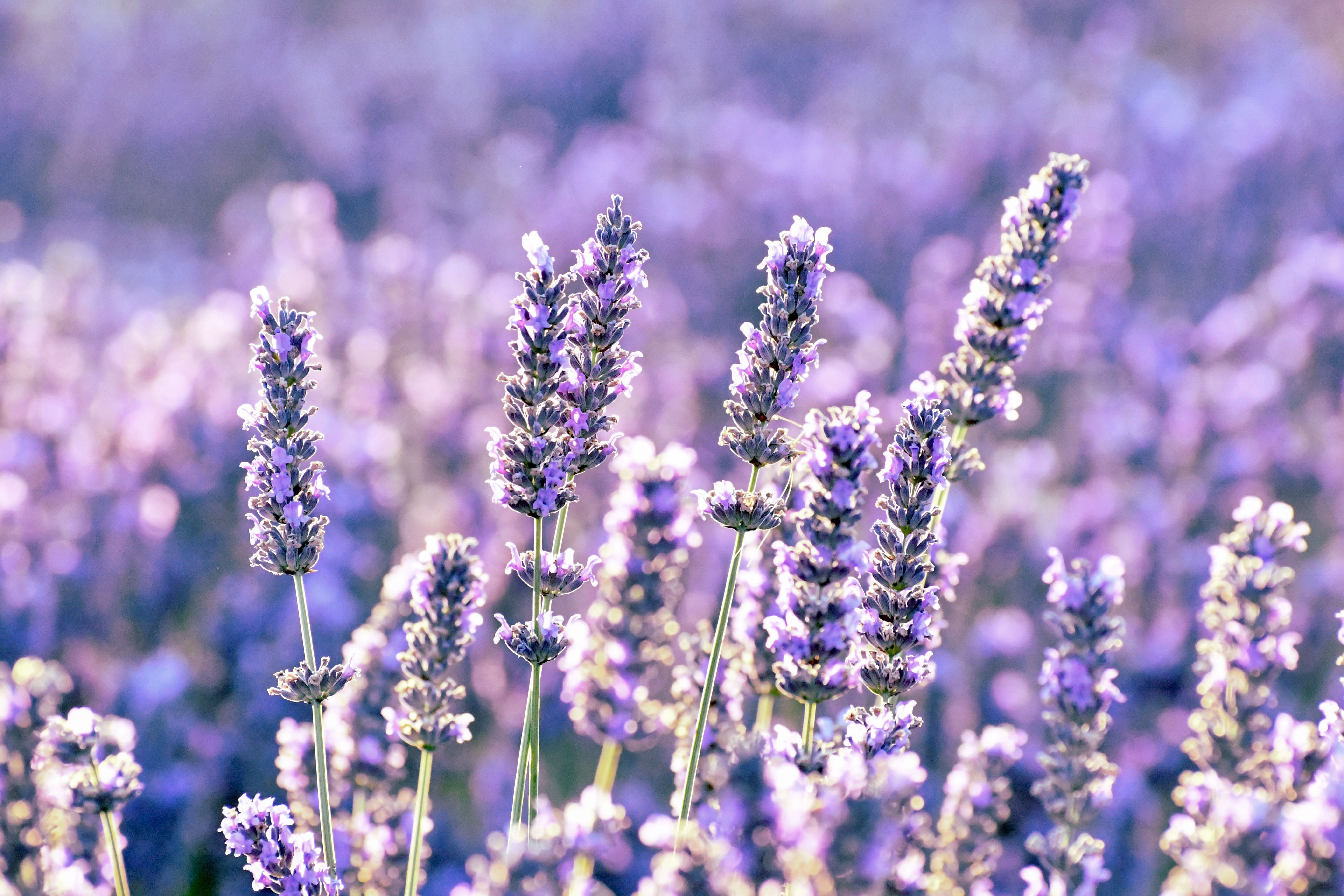
- Catmint: Catmint is another fragrant herb that repels pests. It is also a good source of nectar for butterflies and other pollinators. Catmint is a fast-growing plant that can reach up to 3 feet tall. It is easy to care for and drought-tolerant.
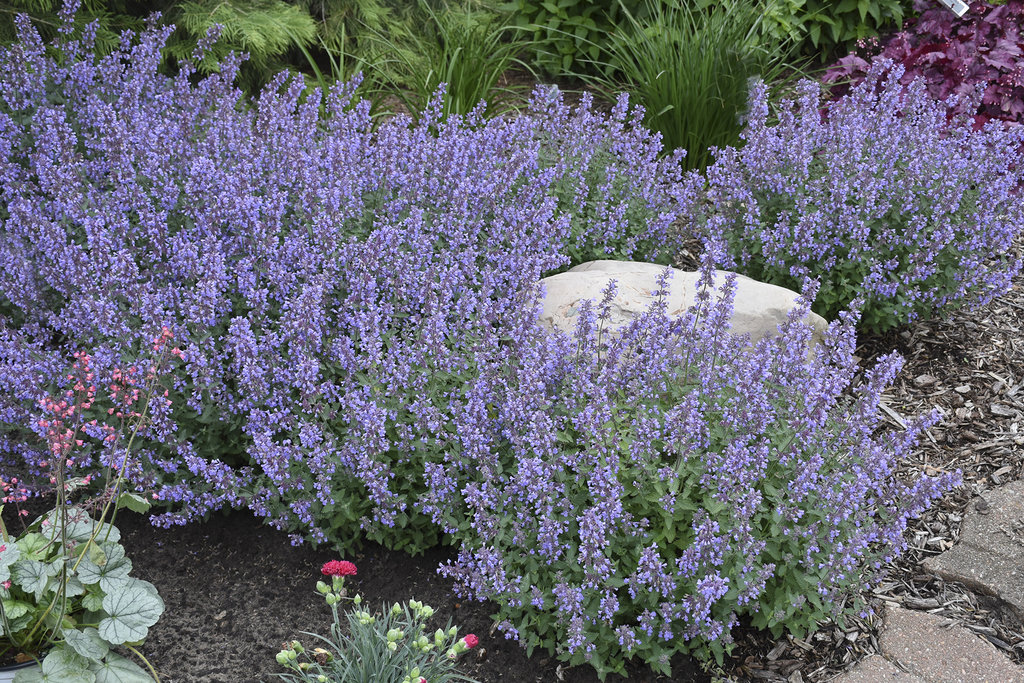
- Geraniums: Geraniums are colorful flowers that add a splash of brightness to any garden. They are also deer-resistant and can help to deter other pests. Geraniums are easy to care for and can tolerate a variety of conditions.
- Yarrow: Yarrow is a hardy perennial that blooms for months in the summer. It is a good source of nectar for butterflies and other pollinators. Yarrow is also a deer-resistant plant that can help to deter other pests.
- Achillea: Achillea is a drought-tolerant perennial that blooms in the summer. It is a good source of nectar for butterflies and other pollinators. Achillea is also a deer-resistant plant that can help to deter other pests.

- Aster: Asters are colorful flowers that bloom in the fall. They are a good source of nectar for butterflies and other pollinators. Asters are easy to care for and can tolerate a variety of conditions.
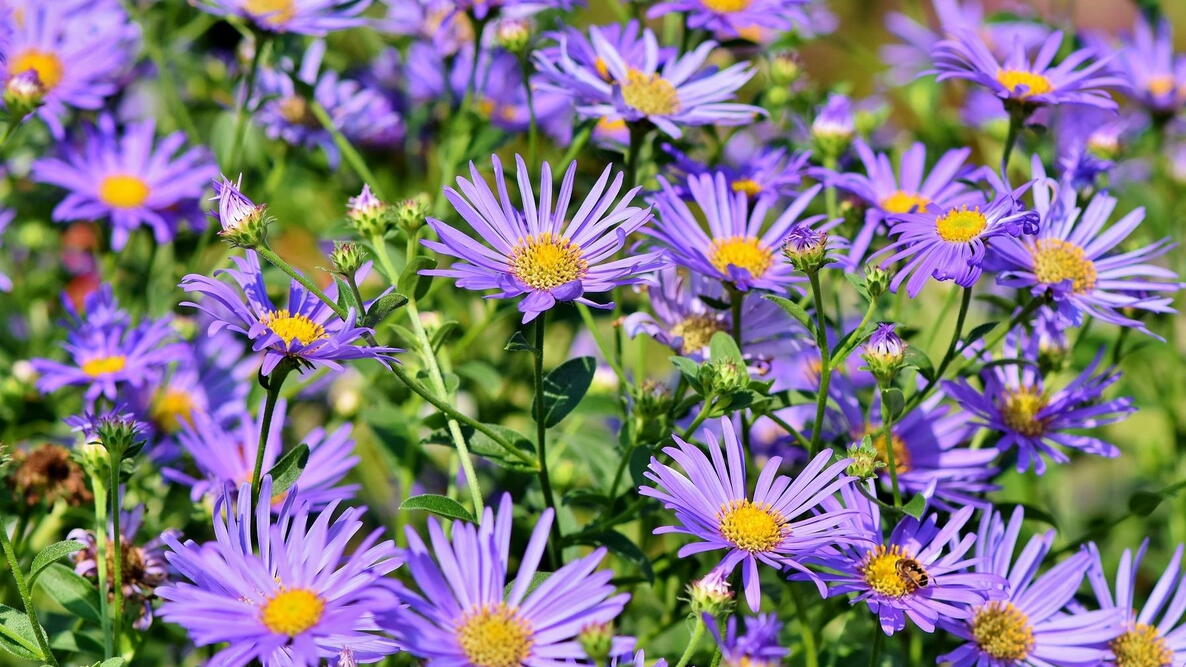
- Chrysanthemum: Chrysanthemums are colorful flowers that bloom in the fall. They are a good source of nectar for butterflies and other pollinators. Chrysanthemums are easy to care for and can tolerate a variety of conditions.
- Coreopsis: Coreopsis are colorful flowers that bloom in the summer. They are a good source of nectar for butterflies and other pollinators. Coreopsis are easy to care for and can tolerate a variety of conditions.
- Echinacea: Echinacea is a coneflower that blooms in the summer. It is a good source of nectar for butterflies and other pollinators. Echinacea is also a medicinal herb that can help to boost the immune system.
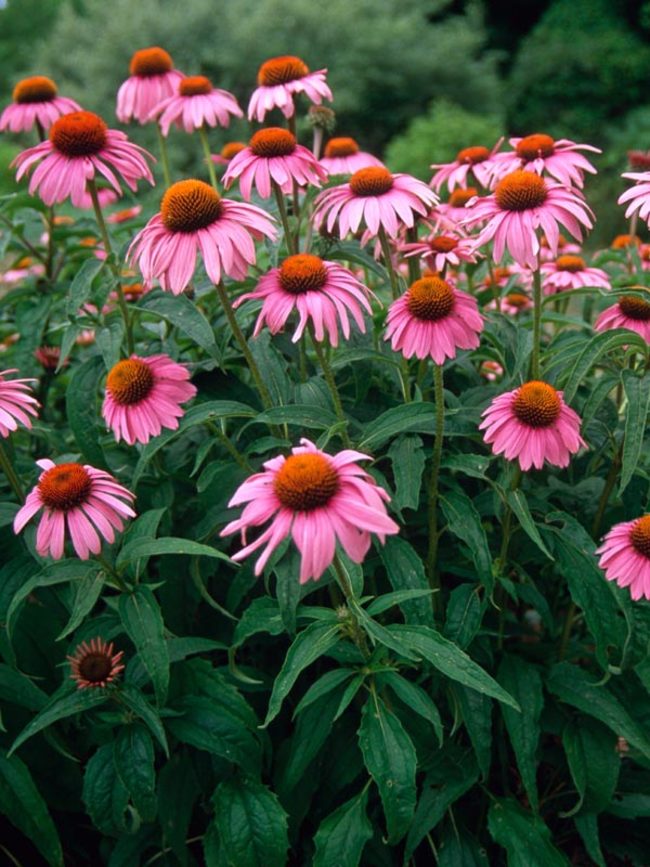
When choosing companion plants for your roses, it is important to consider the size and growth habit of the plants. You want to choose plants that will complement each other and not compete for space. You should also consider the sun exposure and soil conditions in your garden.
Once you have chosen your companion plants, you can plant them in pots together. When planting, make sure to give each plant enough space to grow. You should also amend the soil with compost or other organic matter to improve drainage and fertility.
After planting, water your companion plants regularly. You may also need to fertilize them once a month during the growing season.
With proper care, your roses and companion plants will thrive and provide you with years of beauty and enjoyment.
Conclusion:
Companion planting is a great way to improve the health and beauty of your roses. By choosing the right companion plants, you can deter pests, boost blooms, and extend the flowering season.
So next time you are planting roses, be sure to consider some of the companion plants listed in this blog post. You will be glad you did!
Are you looking for the best companion plants for your roses in pots? There are many great options to choose from, but some of the most popular include:
- Lavender: Lavender is a classic companion plant for roses and for good reason. It helps to deter pests, attract pollinators, and improve the overall health of your roses.
- Catmint: Catmint is another great choice for companion planting with roses. It helps to repel aphids and other pests, and it also has a lovely fragrance.
- Geraniums: Geraniums are colorful and cheerful flowers that can add a pop of color to your rose garden. They also help to deter pests and attract pollinators.
- Yarrow: Yarrow is a hardy perennial that can help to suppress weeds and improve the drainage around your roses. It also has a long blooming period, so you'll enjoy its flowers for months to come.
For more information about rose companion plants in pots, visit Home Gardening.
FAQ of rose companion plants in pots
Here are some of the most frequently asked questions about rose companion plants in pots, along with valuable insights and solutions:
- What are some good companion plants for roses in pots?
Some good companion plants for roses in pots include:
Lavender: Lavender is a fragrant herb that helps to repel pests and attract pollinators. It also has the same soil requirements as roses, so it will thrive in the same type of container.
Catmint: Catmint is another fragrant herb that deters pests and attracts pollinators. It is also drought-tolerant, so it can help to keep your roses hydrated during hot weather.
Geraniums: Geraniums are colorful flowers that can help to fill in the spaces around your roses. They are also deer-resistant, so you can rest assured that your roses will be safe from these pesky animals.
Alyssum: Alyssum is a low-growing groundcover that can help to suppress weeds and provide a splash of color around your roses. It is also drought-tolerant and easy to care for.
Nepeta: Nepeta is a fast-growing herb that can help to deter pests and attract pollinators. It is also drought-tolerant and deer-resistant.
What should I avoid planting near roses?
Some plants that you should avoid planting near roses include:
Onions: Onions can stunt the growth of roses.
Chives: Chives can also stunt the growth of roses.
Garlic: Garlic can also stunt the growth of roses.
Cabbage: Cabbage can attract pests that also target roses.
Broccoli: Broccoli can attract pests that also target roses.
How do I plant companion plants with roses in pots?
When planting companion plants with roses in pots, it is important to consider the size of the pot, the type of soil, and the amount of sunlight the plants will receive. The pot should be large enough to accommodate the roots of both the roses and the companion plants. The soil should be well-drained and rich in organic matter. The plants should receive at least 6 hours of sunlight per day.
- How do I care for rose companion plants?
The care requirements for rose companion plants will vary depending on the type of plant. However, most companion plants will appreciate regular watering, fertilizing, and deadheading. It is also important to check the plants regularly for pests and diseases.
- What are the benefits of planting companion plants with roses?
There are many benefits to planting companion plants with roses. Companion plants can help to:
- Attract pollinators: Pollinators such as bees and butterflies are essential for the reproduction of roses. Companion plants that attract pollinators can help to increase the number of flowers on your roses.
- Deter pests: Some companion plants can help to deter pests that target roses. For example, lavender and catmint are known to repel pests such as aphids and Japanese beetles.
- Suppress weeds: Companion plants that grow low to the ground can help to suppress weeds. This can free up your time so that you can focus on other gardening tasks.
- Improve soil quality: Some companion plants can help to improve the soil quality around your roses. For example, nepeta and yarrow are known to add nitrogen to the soil.
- Add color and interest: Companion plants can add color and interest to your rose garden. They can also help to fill in the spaces between your roses.
Image of rose companion plants in pots
- Lavender is a classic companion plant for roses. It helps to deter pests and diseases, and its fragrance can also help to improve the growth and blooms of roses.
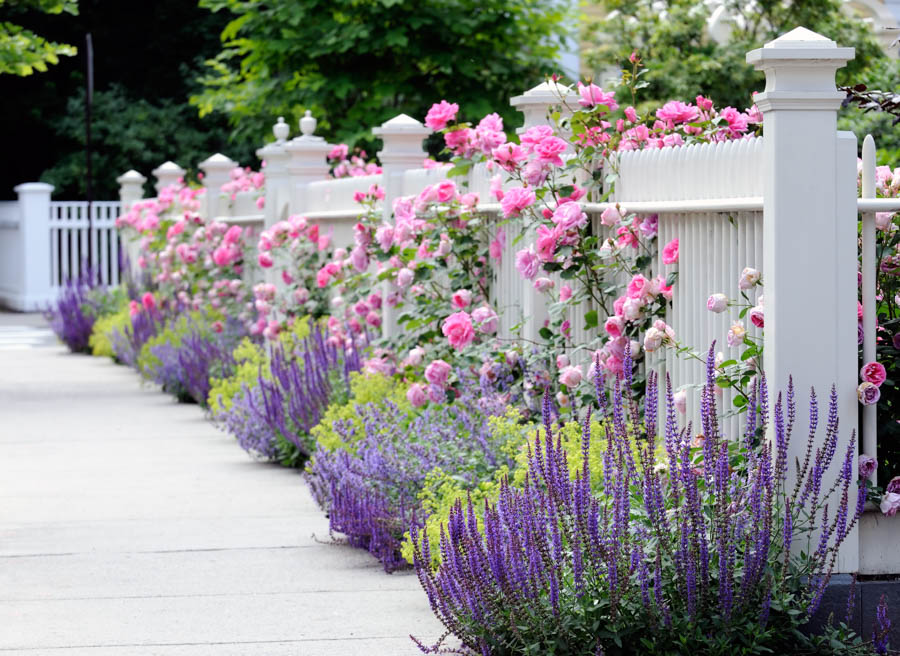
- Catmint is another good choice for a rose companion plant. It attracts pollinators, which can help to improve the pollination of roses. It also helps to suppress weeds.
- Lady's mantle is a beautiful and hardy plant that can add some height and interest to a pot of roses. It also helps to attract pollinators.
- Tall growing pinks are a great choice for a rose companion plant because they come in a variety of colors and bloom for a long time. They also help to attract pollinators.

- Yarrow is a drought-tolerant plant that can help to improve the drainage of a pot of roses. It also helps to repel pests.

- Achillea millefolium is a type of yarrow that is known for its white flowers. It is a good choice for a rose companion plant because it helps to repel pests and diseases.
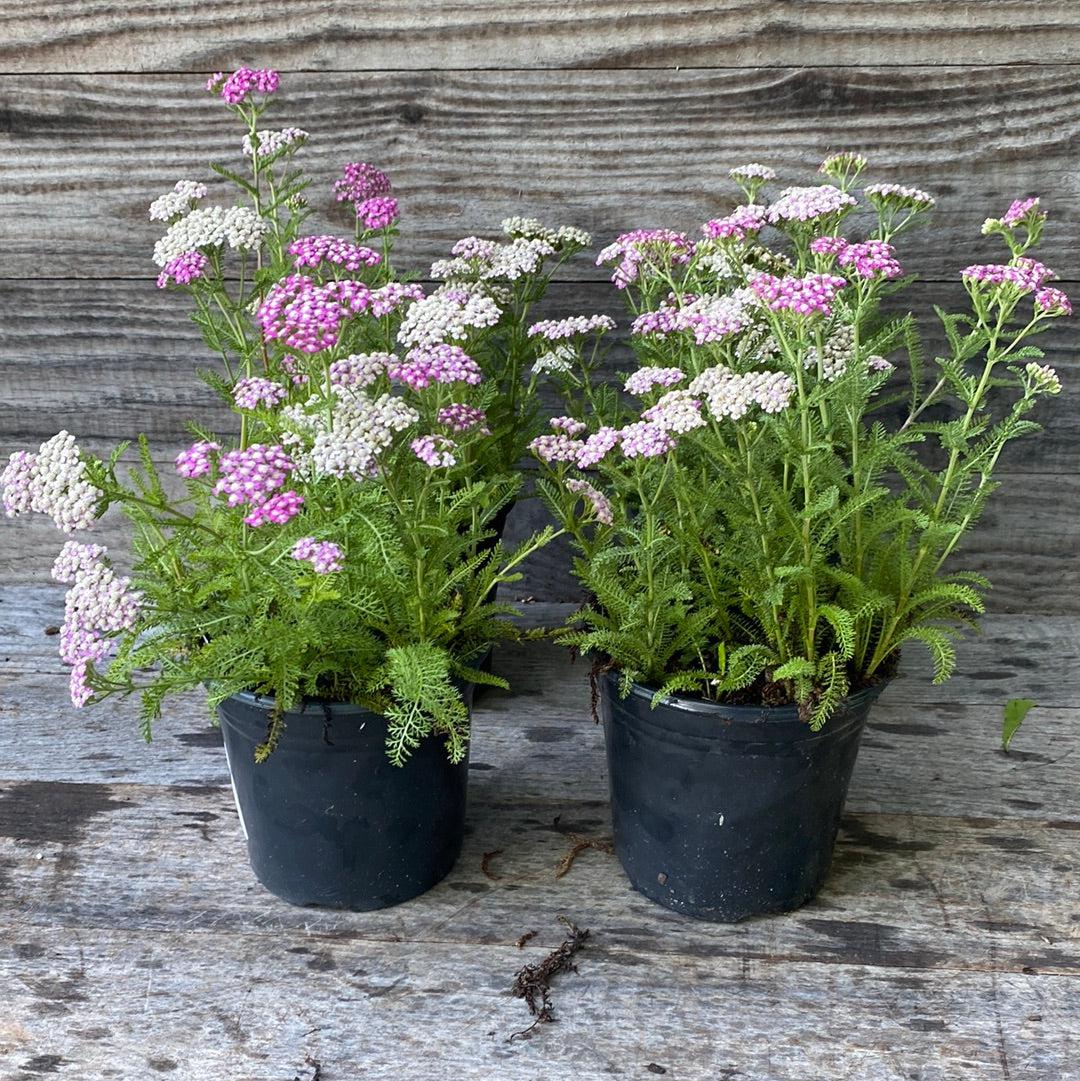
- Salvia is a genus of flowering plants that includes many popular garden varieties. Some salvias, such as Salvia nemorosa, make good companion plants for roses. They help to attract pollinators and can also help to deter pests.
- Zinnia is a colorful annual flower that can add some brightness to a pot of roses. It also helps to attract pollinators.
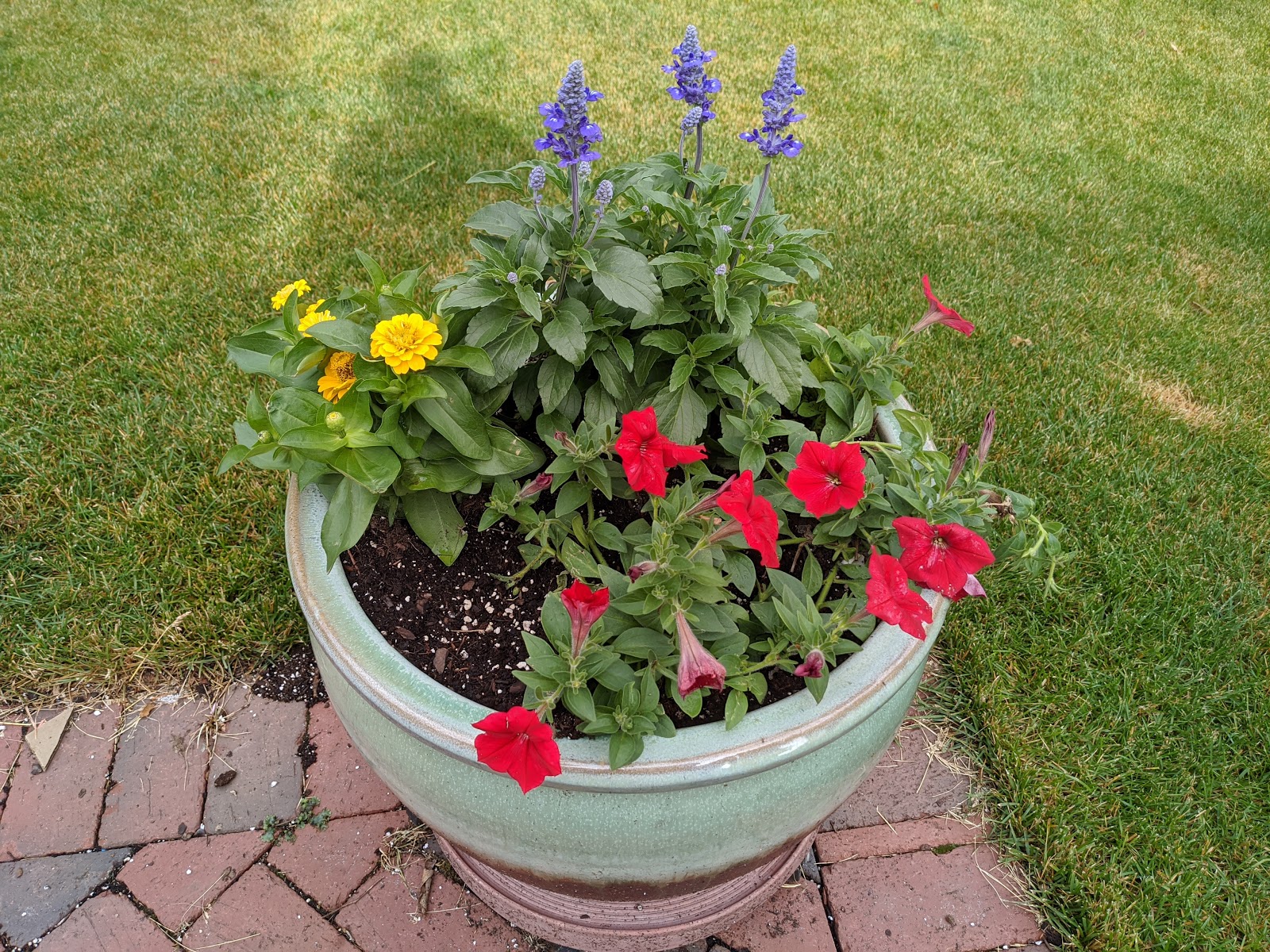
- Marigold is another annual flower that can add some color and interest to a pot of roses. It also helps to repel pests.
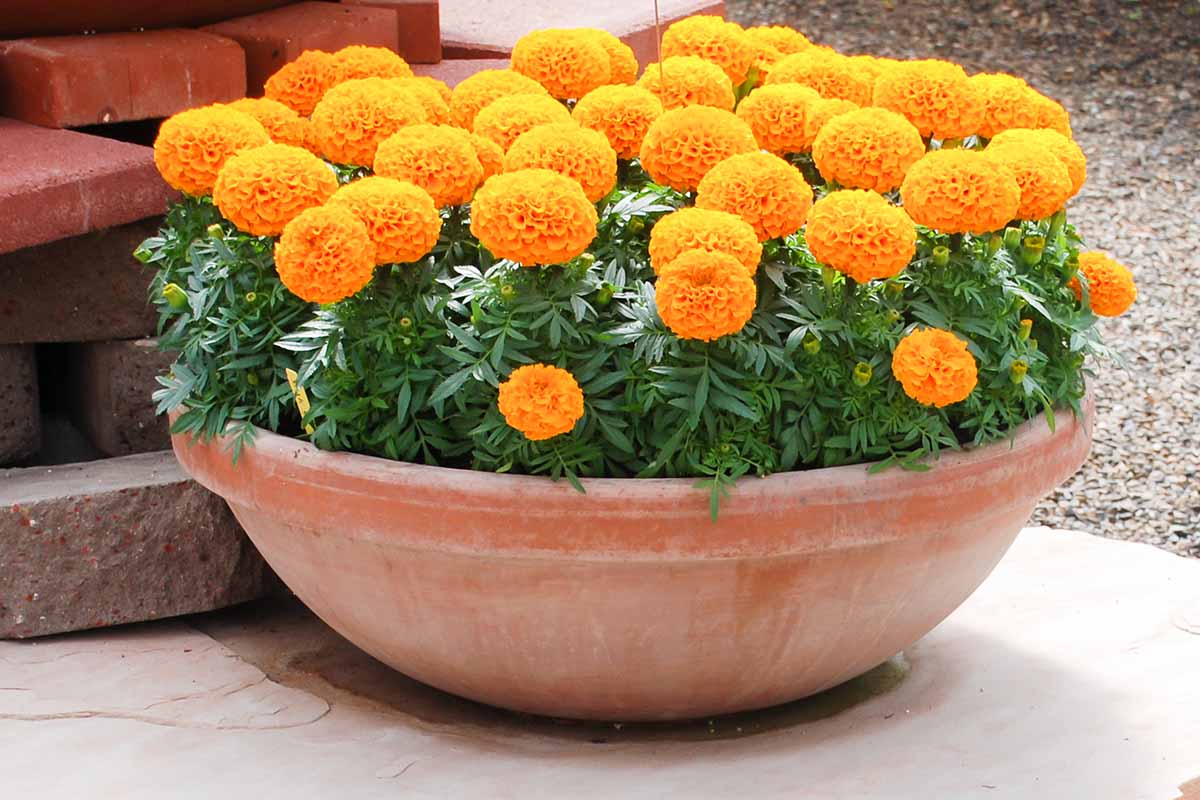
- Petunia is a popular annual flower that comes in a variety of colors. It is a good choice for a rose companion plant because it helps to attract pollinators and can also help to deter pests.



Post a Comment for " Best Rose Companion Plants In Pots"